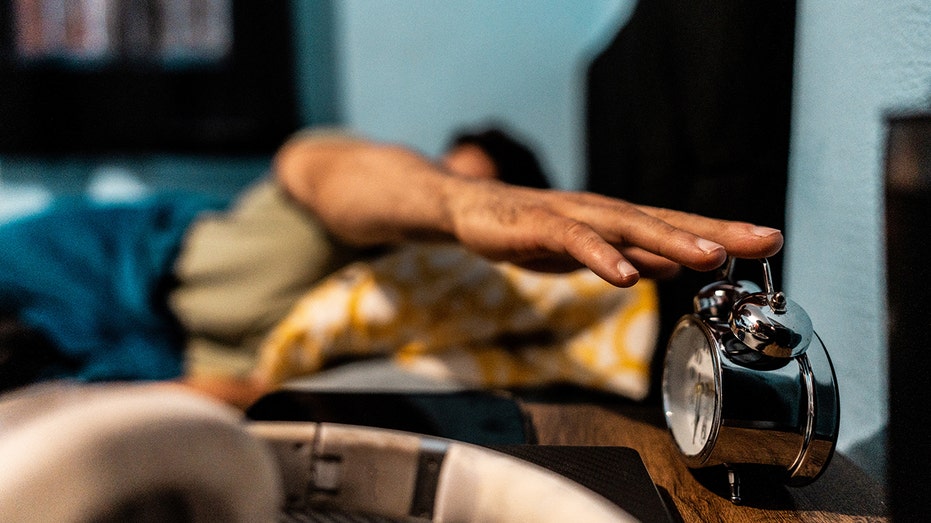Health
Optimize Your Weekend Diet for Daylight Saving Adjustment

As Americans prepare to turn their clocks back on March 10, 2024, experts are highlighting the critical role of diet in managing the effects of the daylight saving time shift. According to research from Tufts University, this one-hour change can disrupt the body’s circadian rhythm, leading to feelings similar to jet lag, which may include grogginess, mood swings, and an altered metabolism.
Dr. Marc Siegel, a senior medical analyst, emphasizes that while gaining an extra hour of sleep might seem beneficial, many individuals are already sleep-deprived, which exacerbates the challenges posed by this time change. The effects are particularly significant for shift workers, children, older adults, and those with existing health conditions.
Understanding the Circadian Impact
Neelofer Basaria, Ph.D., a public health expert based in Texas, explains that the body’s internal clock relies on various factors, including light exposure, meal timing, and hormonal cycles. “Our internal circadian rhythm can fall behind by several days when we change our external clocks,” she stated. This misalignment can lead to various health issues, especially if not managed properly.
Fortunately, there are effective strategies to mitigate these effects through dietary adjustments. Experts recommend that individuals focus on what they consume and when they eat to help reset their internal clocks.
Five Dietary Tips for a Smooth Transition
1. **Prioritize Protein in Breakfast**
Starting the day with a protein-rich breakfast can help stabilize blood sugar levels and promote alertness. Nutritionist Robin DeCicco suggests meals that include eggs, yogurt, or nut butter. She warns against sugary, refined carbohydrates, which can lead to energy spikes followed by crashes.
2. **Adjust Dinner Timing**
Eating dinner earlier can help recalibrate the body’s internal clock. Basaria recommends individuals shift their meal times for the first few nights after the time change. Pairing this with a dim-light routine in the evening can enhance melatonin production, aiding in better sleep quality.
3. **Incorporate Melatonin-Boosting Foods**
Foods such as turkey, cherries, pumpkin seeds, and kiwi are known to support melatonin levels, crucial for improving sleep. Basaria notes that tart cherry juice, in particular, has been shown to enhance sleep quality.
4. **Avoid Late-Day Sugar and Caffeine**
Cutting out caffeine after 14:00 and avoiding high-sugar snacks before bedtime can prevent disruptions in melatonin release. DeCicco highlights the importance of staying active and maintaining hydration, as dehydration is a common cause of fatigue.
5. **Maintain Consistency and Balance**
Consistency in meal timing is vital for a smooth transition. DeCicco advises individuals to keep a balanced diet, incorporating proteins, complex carbohydrates, and healthy fats to maintain steady energy levels.
By implementing these strategies, individuals can better prepare their bodies for the upcoming time change. With proper dietary habits, the adjustment to daylight saving time can become a smoother experience, allowing for improved energy and mood in the days ahead.
-

 Technology5 months ago
Technology5 months agoDiscover the Top 10 Calorie Counting Apps of 2025
-

 Technology2 weeks ago
Technology2 weeks agoOpenAI to Implement Age Verification for ChatGPT by December 2025
-

 Health3 months ago
Health3 months agoBella Hadid Shares Health Update After Treatment for Lyme Disease
-

 Health3 months ago
Health3 months agoAnalysts Project Stronger Growth for Apple’s iPhone 17 Lineup
-

 Health3 months ago
Health3 months agoErin Bates Shares Recovery Update Following Sepsis Complications
-

 Technology5 months ago
Technology5 months agoDiscover How to Reverse Image Search Using ChatGPT Effortlessly
-

 Technology3 months ago
Technology3 months agoElectric Moto Influencer Surronster Arrested in Tijuana
-

 Technology2 months ago
Technology2 months agoDiscover 2025’s Top GPUs for Exceptional 4K Gaming Performance
-

 Technology5 months ago
Technology5 months agoMeta Initiates $60B AI Data Center Expansion, Starting in Ohio
-

 Technology5 months ago
Technology5 months agoRecovering a Suspended TikTok Account: A Step-by-Step Guide
-

 Health5 months ago
Health5 months agoTested: Rab Firewall Mountain Jacket Survives Harsh Conditions
-

 Lifestyle5 months ago
Lifestyle5 months agoBelton Family Reunites After Daughter Survives Hill Country Floods





















